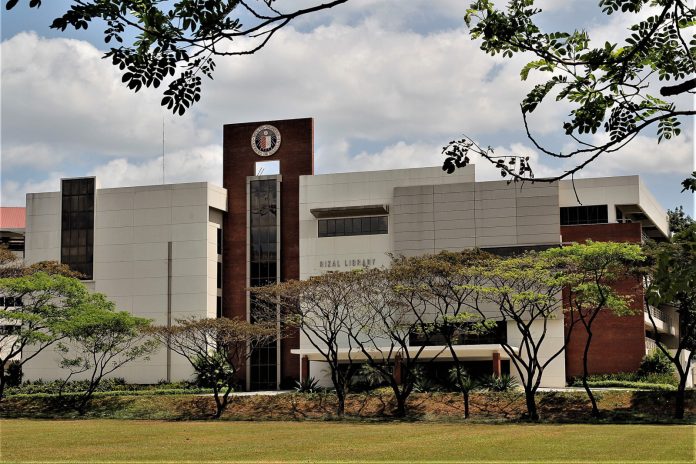The Jesuit Ateneo de Manila University won awards for a case study on zero waste initiatives in the inaugural “Make the Case” Competition in East Asia.
“Make the Case” is a new Asia-wide student competition that challenges students to identify where plastic reduction projects are working and to think more seriously about how scale can be achieved.
The overall winner, including the prize for top Theme Two entry, was “Team Dreamers and Doers” from Ateneo de Manila University.
The team showcased the “Aling Tindera Network,” a waste-to-cash program that involves local networks of women micro-entrepreneurs, most of whom own sari-sari stores or small, home-based convenience stores found in many Filipino neighborhoods.
In the presentation, the team suggested Thailand as the country that could best benefit from a similar program.
The Theme One winner was “Team Help Help Hooray,” also from Ateneo de Manila University.
The team’s case study profiled a zero waste initiative on Apo Island in the Philippines and offered a framework to extend the Apo Island model to other coastal islands in the Philippines and across Asian region.
“As a long-term resident of Hong Kong and having carried out extensive programs within East Asia, it was exciting to see the attention to detail, the depth of their answers, passion shown by the student teams, and how much they understood the situations and opportunities,” said Doug Woodring, the founder of Ocean Recovery Alliance and recognized plastic waste thought leader.
“Not only was this apparent in their case studies and presentations, but also in their essays on how the Plastic Atlas Asia could be expanded in future editions,” he added.
While there are many start-up competitions, “Make the Case” is unique as the only sustainability challenge wherein students are focused on existing solutions that hold the potential to be applied elsewhere.
“Students quickly grasp that innovation also means identifying what is working and ensuring that good ideas do not get lost,” said Dr. Justin Robertson, associate professor at City University of Hong Kong, one of the co-organizers, along with CAPP and Ocean Recovery Alliance.
“Through research, foresight and planning, university students from a range of different disciplines proved capable of uncovering high-impact projects and setting out a vision of how they could be replicated in other parts of the region,” said Robertson.
Made possible by generous sponsorship from the Pictet Group Foundation and the support of a collaborating partner, the Heinrich Böll Stiftung Hong Kong, the competition culminated in an awards ceremony with the winning student teams both coming from Ateneo de Manila University in the Philippines.
Teams representing 22 universities in 10 countries participated by writing a detailed case study on an initiative that significantly reduces plastic waste where it operates, and could be scaled to another location.
The two themes were:
- find a proven project in a city, town or village that does an effective job in reducing the amount of plastic waste that enters the nearby waterway; or
- pick an existing, proven project or program that reduces or eliminates plastic pollution which can be cost-effectively replicated and scaled.
Teams competed for the prize money of US$16,500.
In September 2022, “Make the Case” was recognized by The United Nations Office of South South Cooperation as one of its Good Practice Solutions.









